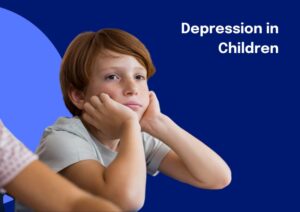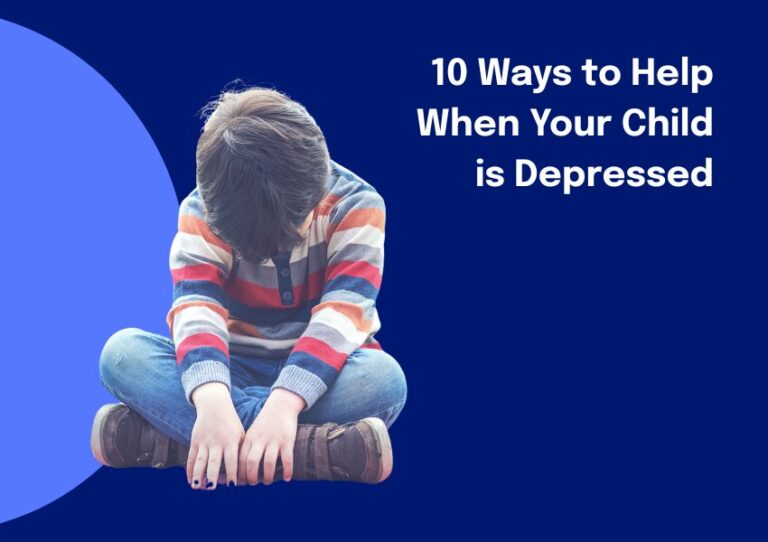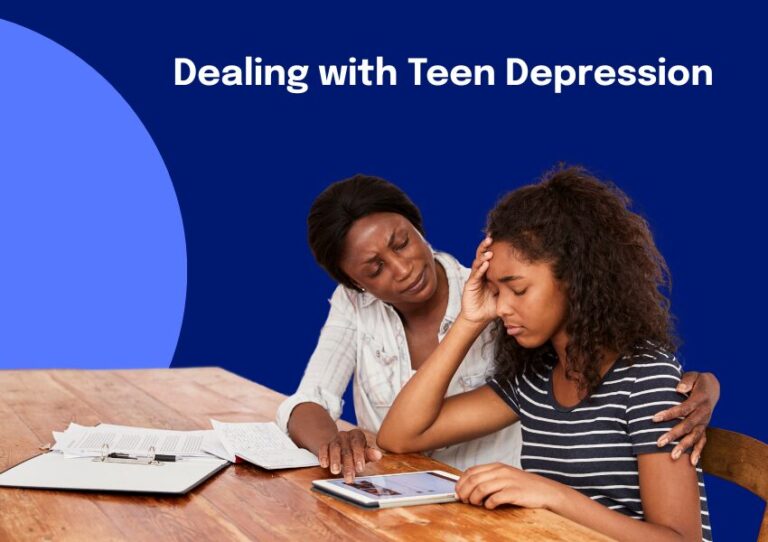Depression in Children

What is depression?
It’s normal to sometimes feel sad, blue or less motivated to do the things we usually enjoy. But parents and caretakers need to act when signs of depression or anxiety begin to get in the way of a child’s or teen’s ability to successfully take part in school, family and social activities. Fortunately, there are treatments available that work.
Depression can affect children of all ages, even preschoolers. Children and adolescents may not know how to talk about feeling down or worried, and may become withdrawn or less cooperative or irritable. Depression becomes more common as youth move through adolescence. More than half of adolescents report feeling depressed at some point. Anxiety is often part of a depressed mood. Anxiety is feeling fearful, threatened or panicky with no clear cause.
What should I do if I’m concerned about my child?
- Look for ways to talk with your child or adolescent about reducing stress. Work together to find ways to reduce stress in the home, family and in your child’s daily life. Be cautious about sharing your own stress with your child or teen.
- Encourage and support your child in getting enough sleep. Trouble sleeping and poor sleep habits are a very common problem among teens, and can lead to depression and anxiety or make them worse.
- Promote healthy eating and daily exercise.
- Pay attention to how much your child’s symptoms prevent them from taking part in daily life.
- It’s time to take action if your child’s depression or anxiety causes them to “drop out” of their life (no longer seeing friends, leaving a team, falling grades).
If your child’s symptoms don’t go away, get worse or make it hard for them to function, talk to your pediatrician or primary care provider and ask for a referral for a mental health evaluation. If your child refuses to go to the appointment, it’s a good idea for you or another parent or caregiver to go to the appointment to get support and learn ways to support your child.
What causes depression in children and teens?
There is a genetic component to depression. The condition is more common among kids with a family history of depression.
Stress plays a key role in the start of depression. It can also cause your child’s symptoms to continue. Stress comes in all shapes and sizes and might include:
- School pressures
- Problems with peers
- Family conflict
- Pressures of adolescence (moving from elementary to middle school and middle school to high school, romantic relationships, etc.)
The changes that take place during puberty put children at greater risk of having depression and anxiety. They are likely to react more emotionally due to their stage of brain development and the fact that they don’t yet have effective problem-solving skills.
Some very young children seem to be at risk of depression. For these children, it is likely a combination of a genetic risk, temperament and difficulty getting involved and enjoying activities.
Symptoms of Depression
Your child or teen may have some or all of these signs and symptoms of depression:
- Sadness or feeling irritable
- Loss of interest or pleasure in usual activities
- Eating too much or too little
- Weight changes
- Sleeping too much or too little
- Feeling tired a lot
- Feeling guilty
- Trouble thinking or paying attention
- Suicidal thoughts or behavior
Other symptoms may include hopelessness, anxiety, aches and pains and oppositional behavior (being uncooperative and hostile).
Depression can cause:
- School and social problems
- An increased risk of suicide and substance use
- Family problems
- Repeated episodes of depression
Due to the long-term consequences of depression, it should be taken seriously and treated. Talk to your child’s pediatrician immediately when you see signs of depression in your child.


